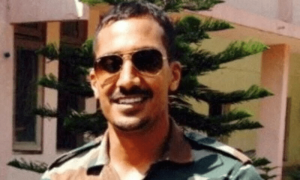As the world mourns Asma Jahangir's untimely death, her unparalleled commitment and resolve towards human rights advocacy has ensured that Pakistan’s hope of a pluralistic future lives to see another day.
Here is a look at five cases, and consequently causes, that Jahangir successfully litigated before different courts in Pakistan.
Women’s unilateral right to Marriage
The Lahore High Court in 1997, while upholding a 22-year-old Pakistani woman's marriage without the consent of her guardian, called for changes in Pakistani laws to enforce parental authority and discourage courtships.
Jahangir played a crucial role in the setting aside of the LHC judgment, as a result of which in 2003, the Supreme Court held that Pakistani women had the unequivocal right to marry on their own free will without needing the consent of a wali (the woman's father or brother). The Supreme Court held that the LHC had no right to adjudicate on a women’s unilateral right to marry, as the matter had already been decided by the Federal Shariat Court in 1981.
Enforcing punishments against “honour crimes”
Jahangir successfully represented victims of honour killing before the Supreme Court. The apex court overturned the LHC’s reduced prison sentence against family elders, who had murdered a woman, and seriously injured her husband, for marrying against the elders’ wishes.
Jahangir successfully litigated that the elders’ actions were not due to “grave and sudden provocation” as the high court had held, but were, in fact, premeditated with intent to kill, thereby sentencing the elders’ to life imprisonment.
Juvenile rights
Jahangir contested the indiscriminate arrest and search of child vagrants by the Punjab police under the Punjab Vagrancy Ordinance of 1958.
She challenged the Ordinance and argued that since Pakistan as a welfare state had failed to provide education, healthcare and employment benefits to its citizens, there was no justification for imposing harsh restrictions on the poor and needy citizens. While the petition was dismissed by the LHC, the court instructed the administration to distinguish professional beggars from beggars by necessity in order to determine whether a detention was applicable on basis of individual circumstances.
Custody rights
Jehangir, in a child custody/welfare matter, successfully restored custody of a male minor to his mother in accordance with Muslim law, whereby the father had unlawfully deprived the mother of custody for years.
Minority rights
Jehangir successfully represented a Christian accused of blasphemy, whereby the Supreme Court granted the accused bail. The accused had remained in jail for more than three years, during which the prosecution against the accused was subject to extended delays beyond the mandatory statutory period, and the prosecution did not conduct a semblance of a proper trial against the accused.














































